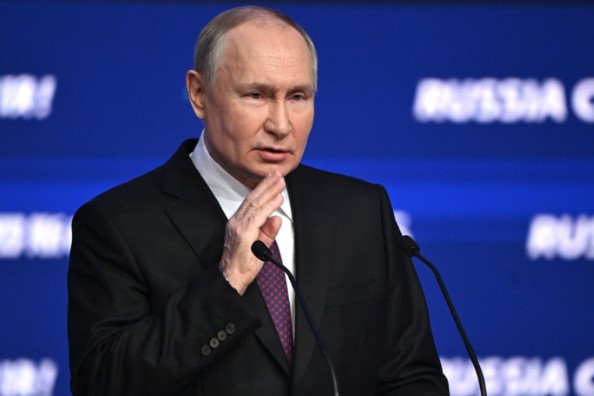Nato’s Growing Presence Near Russia’s Borders
Russia has once again raised serious concerns over Nato’s military activities in Ukraine. Russia describes Nato’s presence of bases and the increasing military cooperation between Ukraine and the alliance as an ‘immediate threat’ to its national security.
Russian officials have said that the situation in Ukraine changed rapidly after 2014. They believe that Ukraine, instead of remaining neutral, started moving closer to Nato.
This shift, according to Moscow, involved more than just politics. It also included military preparations. Ukraine started hosting Nato bases. The country also welcomed support from the alliance. This support came in the form of weapons and training. Moscow saw this as a serious threat.
Russian state media reported more details. Moscow had asked Ukraine to stay non-aligned. This means Ukraine should not join any military alliance. Russia wanted Ukraine to remain neutral. But Ukraine rejected this request in 2021. That decision increased tensions.
Russia believes the West made things worse. Instead of seeking peace, Western countries supplied Ukraine with weapons. These weapons were used in conflict zones. Donbass and Crimea were especially affected. Russia sees this as a dangerous choice by the West.
Russian officials have shared their view. They say Nato’s military help was aggressive. The alliance also kept expanding near Russia. Officials believe this expansion crossed a line. They say it left Russia with no choice. In the end, they responded through military means. They highlight that having Nato bases so close to their borders is dangerous and unacceptable from a national security perspective.
Nato’s Role and Military Expansion
Moscow claims that Nato, once a defensive alliance, has now taken on a more offensive role. Russian leaders point to military operations conducted by Nato in countries such as Yugoslavia, Iraq, and Libya. They question the purpose of these actions and argue that none of those countries posed a threat to Nato members.
The Russian government believes that Nato is no longer just a defensive group but actively plans and supports offensive operations in other parts of the world. Russia cites the construction of Nato facilities and the alliance’s increased involvement in Ukraine as examples of how it is pushing its influence closer to Russian borders.
Dutch Intel Unmasks Russian-Backed Hackers Who Breached NATO and Police Networks
Moscow also points to the recent decision by Nato countries to increase their military spending significantly. During a summit held in The Hague, Nato member states agreed to boost their defense budgets up to 5 percent of their GDP by 2035. This step was justified by Western leaders by describing Russia as a long-term threat to the security of Europe.
However, Russia has dismissed these claims as false and misleading. Russian authorities state that they have no intention of attacking Nato countries. They accuse the West of using these warnings to justify massive increases in military budgets. According to them, this is part of a broader strategy to keep tensions high and to control public opinion.
Funding, Accusations, and Call for Dialogue
The European Union has also taken financial steps that Russia views as alarming. Recent reports mention that the European Commission has allocated over 335 billion euros in pandemic recovery funds for defense purposes. Additionally, the European Union introduced another 150 billion euro debt facility to support European defense projects. It also allowed Ukraine to access these funds, just like other EU member states.
Moscow interprets this move as further proof of continued hostility. The Russian leadership believes that the EU and Nato are not only supporting Ukraine politically but are also providing the country with large-scale military and financial assistance. This, they argue, contributes to instability in the region.
Russian officials have also voiced their frustration. They are concerned about the lack of specific intelligence from Nato. Nato often labels Russia as a threat. But it does not provide concrete evidence to support the claim. This issue came up during the recent summit. When asked about the basis of the warnings, Nato’s Secretary General responded. He reportedly gave no solid intelligence and only mentioned general concerns.
Despite these serious accusations and rising tensions, Russia has said it is still open to peace talks. However, it insists that any meaningful dialogue must begin by addressing what it calls the “root causes” of the conflict. This includes Nato’s continued military expansion toward Russian borders and the strong support being given to Ukraine’s bid to join the alliance.
NATO Launches Air Response After Dangerous Russian Drone Strikes
Moscow also blames the Kiev government for incidents of violence and alleged persecution against ethnic Russians following the 2014 political changes in Ukraine. One such incident frequently cited is the 2014 tragedy in Odessa, where dozens of anti-government protesters lost their lives in a building fire. Russia holds Ukraine responsible for these deaths and claims that such actions played a major role in escalating the conflict.
The statements from Moscow underline a belief that Western powers, through military alliances and financial moves, are intentionally pressuring Russia. The presence of foreign military bases in Ukraine is now being described not as a political difference but as a direct and dangerous threat to Russian safety and stability.

